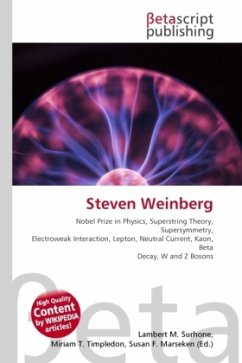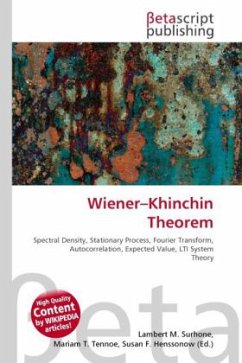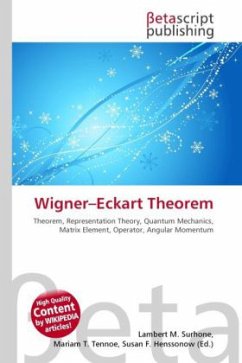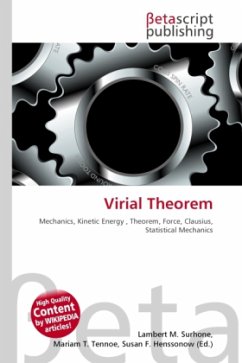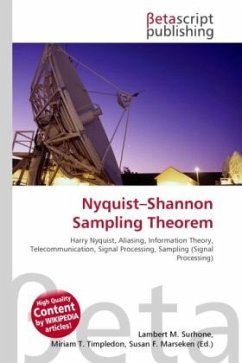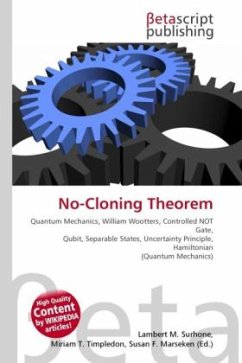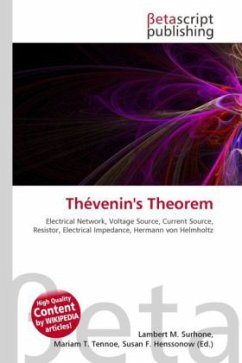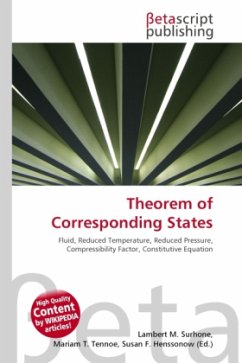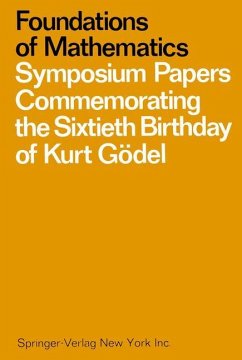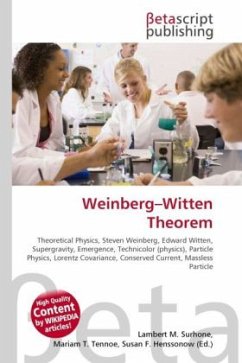
Weinberg Witten Theorem
Versandkostenfrei!
Versandfertig in 6-10 Tagen
23,99 €
inkl. MwSt.

PAYBACK Punkte
12 °P sammeln!
High Quality Content by WIKIPEDIA articles! In theoretical physics, the Weinberg Witten theorem (WW), proved by Steven Weinberg and Edward Witten, states that no massless (composite or elementary) particles with spin j greater than one are consistent with any renormalizable Lorentz-invariant quantum field theory excluding only (nonrenormalizable) theories of gravity and supergravity. Weinberg and Witten consider the so-called emergent theories to be misguided. During the 80's, preon theories, technicolor and the like were very popular and some people were speculating that gravity might be an e...
High Quality Content by WIKIPEDIA articles! In theoretical physics, the Weinberg Witten theorem (WW), proved by Steven Weinberg and Edward Witten, states that no massless (composite or elementary) particles with spin j greater than one are consistent with any renormalizable Lorentz-invariant quantum field theory excluding only (nonrenormalizable) theories of gravity and supergravity. Weinberg and Witten consider the so-called emergent theories to be misguided. During the 80's, preon theories, technicolor and the like were very popular and some people were speculating that gravity might be an emergent phenomenon or that gluons might be composite. So, they came up with a no-go theorem that excludes, under very general assumptions, the hypothetical composite and emergent theories. Decades later new theories of emergent gravity are proposed and the mainstream high-energy physicists are still using this theorem to "debunk" such theories. Because most of these emergent theories aren't Lorentz covariant, the WW theorem doesn't apply. The violation of Lorentz covariance however leads to other problems.



